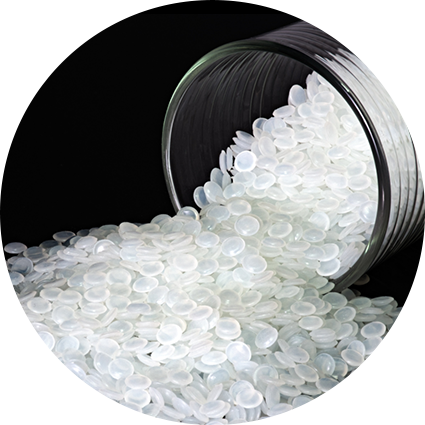What Are Fully Biodegradable Eco-Friendly Bags Made Of?
Materials and Composition
Fully biodegradable eco-friendly bags are made from natural materials that break down safely and efficiently in the environment, offering a sustainable alternative to conventional plastic bags. These bags are primarily composed of plant-based substances such as cornstarch, potatoes, or sugarcane—materials that are renewable and biodegradable. The key component in these bags is typically a polymer derived from starch or cellulose, which can decompose in soil or water within a few months to a few years, depending on the conditions.
Additionally, some biodegradable bags are made from bioplastics, such as polylactic acid (PLA), which is derived from fermented plant starch, like corn. PLA bags are compostable in industrial composting facilities and provide an eco-friendly alternative to traditional plastic. Other materials include hemp, jute, and cotton, all of which are natural fibers that are not only biodegradable but also strong and durable for carrying goods.
The natural composition of these bags ensures they degrade naturally without releasing harmful chemicals into the environment, unlike plastic bags, which can take centuries to break down. These bags offer an innovative solution for reducing the environmental impact of single-use plastic packaging.
Difference from Traditional Plastic Bags
Unlike traditional plastic bags made from polyethylene or polypropylene, which are derived from petroleum-based resources and are not biodegradable, eco-friendly biodegradable bags are designed to break down into natural substances over time. The key differences between biodegradable bags and conventional plastic bags include:
| Feature |
Fully Biodegradable Eco-Friendly Bags |
Traditional Plastic Bags |
| Material |
Plant-based polymers, bioplastics, natural fibers like hemp, cotton, or jute |
Petroleum-based plastics (polyethylene, polypropylene) |
| Biodegradability |
Degrades naturally in months to a few years depending on conditions |
Can take centuries to break down, releasing toxic chemicals in the process |
| Environmental Impact |
Minimal environmental impact, compostable, non-toxic to wildlife |
Contributes to long-lasting pollution, harmful to wildlife and ecosystems |
| Strength and Durability |
Strong enough for everyday use, although typically less durable than plastic bags |
Durable and tear-resistant, but non-biodegradable |
| Cost |
Generally higher production cost, but prices are decreasing with demand |
Lower cost due to mass production and widespread use of petroleum-based materials |
While traditional plastic bags are inexpensive and highly durable, their environmental cost is severe. In contrast, biodegradable bags offer a sustainable solution that does not harm the planet in the long run, making them a valuable choice for eco-conscious consumers and businesses alike.
Why Should Businesses and Consumers Choose Eco-Friendly Bags?
Environmental Benefits
The primary reason to switch to eco-friendly biodegradable bags is the significant environmental benefits they offer. These bags help reduce plastic waste, one of the most pressing environmental challenges facing the world today. Traditional plastic bags contribute massively to ocean pollution, littering landscapes, and harming wildlife. Over a million marine animals die each year due to plastic ingestion or entanglement.
By opting for biodegradable bags, businesses and consumers can contribute to reducing the demand for plastic bags, thus decreasing plastic production, oil consumption, and greenhouse gas emissions associated with plastic bag manufacturing. Moreover, biodegradable bags degrade naturally, returning to the earth without leaving behind harmful microplastics. This reduces the environmental footprint and helps protect wildlife and ecosystems.
Furthermore, biodegradable bags made from sustainable materials like cornstarch or jute are renewable, and their production generally uses less energy compared to petroleum-based plastic bags. This helps conserve natural resources and supports more sustainable agricultural practices. For consumers, choosing biodegradable bags represents an easy yet impactful way to make environmentally conscious decisions.
Brand Image and Customer Appeal
For businesses, adopting eco-friendly biodegradable bags not only helps the environment but also boosts brand image and appeals to a growing base of eco-conscious consumers. As sustainability becomes an increasingly important factor in purchasing decisions, offering biodegradable bags can differentiate a business from its competitors and establish it as a leader in environmental responsibility.
Customers today are more informed than ever and tend to favor brands that prioritize sustainability. By switching to biodegradable packaging, businesses demonstrate their commitment to the environment, which can improve customer loyalty and attract new clientele. Eco-friendly practices resonate with younger generations who are especially concerned about the planet’s future, and adopting such practices can drive long-term profitability.
Additionally, many businesses, especially in the retail and food industries, can promote their commitment to sustainability by prominently displaying the use of biodegradable bags. This not only enhances the brand’s image but can also encourage customers to embrace sustainable choices in their own lives. In some cases, businesses that make the switch to biodegradable bags even qualify for government incentives, grants, or recognition, further enhancing their reputation and marketability.
How Durable and Practical Are Biodegradable Bags in Daily Use?
Strength and Load Capacity
Biodegradable bags are designed to handle a variety of everyday tasks, offering strength and durability that make them practical alternatives to traditional plastic bags. While they may not always be as strong as their plastic counterparts, advancements in materials and manufacturing processes have led to the development of biodegradable bags that can carry significant loads. Many biodegradable bags are made from plant-based polymers such as PLA (polylactic acid) or PBAT (polybutylene adipate terephthalate), which provide a good balance between strength and eco-friendliness. These materials allow the bags to carry groceries, clothing, or other retail items without tearing or breaking under normal use.
For more specialized applications, such as waste disposal, Lightweight fully biodegradable PET garbage bag BIO/M-CWF02-Y offers the strength required for heavier waste while still maintaining its compostable properties. These bags are designed to handle everything from kitchen scraps to pet waste, offering a practical and eco-friendly solution for waste management. With proper care, biodegradable bags can be just as reliable as plastic bags in daily life, ensuring that they remain durable enough for various uses while staying sustainable and safe for the environment.
Applications in Retail, Food, and Lifestyle
Biodegradable bags are gaining popularity in numerous industries, including retail, food services, and lifestyle products. In retail environments, these bags are commonly used for carrying purchases in stores, helping reduce the reliance on single-use plastic. As consumer demand for sustainability grows, businesses in various sectors are increasingly adopting biodegradable bags to meet eco-conscious customer preferences. Retailers are utilizing biodegradable shopping bags, often made from recycled or plant-based materials, as a sustainable option for their customers while promoting their brand's commitment to environmental responsibility.
In the food industry, biodegradable bags are used in a range of applications, from packaging for fresh produce to takeout containers. Restaurants and cafes can use these bags for delivery or packaging takeaway meals, as they are durable enough to hold food without compromising on sustainability. The use of biodegradable materials also aligns with the growing trend toward more eco-friendly packaging in food delivery, helping reduce the impact of packaging waste on the environment.
For lifestyle products, biodegradable bags are increasingly used for a variety of purposes, such as carrying gym clothes, laundry, or as reusable bags for personal use. Their versatility makes them suitable for everyday tasks while contributing to a greener lifestyle. Whether used in fashion, home goods, or pet products, biodegradable bags are becoming a practical and eco-friendly option for consumers who want to reduce their environmental footprint.
Where Can Fully Biodegradable Eco-Friendly Bags Be Applied?
Grocery Stores and Supermarkets
One of the most common applications for fully biodegradable eco-friendly bags is in grocery stores and supermarkets. These bags provide a sustainable alternative to traditional plastic grocery bags, which often end up in landfills or the ocean. Many grocery chains are now offering biodegradable options to customers who are looking for environmentally conscious choices. The ability to carry produce, canned goods, dairy, and more in a biodegradable bag without the risk of tearing or puncturing is a significant selling point.
In addition, biodegradable bags at grocery stores can also help reduce the store’s overall environmental footprint. By switching to biodegradable bags, retailers are contributing to the reduction of plastic waste, which is one of the largest contributors to environmental pollution. Moreover, these bags can be made from recycled plant-based materials or other compostable substances that decompose naturally without causing harm to the environment, making them a great fit for the growing demand for sustainable packaging solutions in the retail sector.
Restaurants and Takeout Packaging
Biodegradable bags are increasingly popular for takeout packaging, as many consumers and businesses strive for sustainability in foodservice operations. Restaurants can use biodegradable bags for delivering food, from casual takeout to fine dining deliveries. These bags provide a durable and safe option for transporting food without harming the environment. Whether used for fresh bakery goods, hot meals, or cold drinks, biodegradable bags help reduce the use of single-use plastics, which are often discarded after a single use, contributing significantly to plastic pollution.
In addition to takeaway bags, restaurants can use biodegradable packaging for condiments, straws, or utensil wraps, further minimizing their reliance on plastic. For instance, using Lightweight fully biodegradable PET garbage bag BIO/M-CWF02-Y for waste disposal ensures that the entire foodservice operation remains eco-friendly, from packaging to waste management.
As part of a larger trend in sustainable dining, businesses can attract environmentally conscious customers by using biodegradable bags and packaging, thereby enhancing their reputation and appeal. With the growing popularity of eco-friendly dining options, switching to biodegradable packaging can also give restaurants a competitive edge in an increasingly green-conscious market.
Events and Promotional Branding
At events, festivals, and for promotional branding, fully biodegradable eco-friendly bags are an excellent way to promote sustainability while offering a practical giveaway item. Events that focus on environmental issues or cater to eco-conscious audiences can provide biodegradable bags as part of their merchandising or swag bags. These bags can carry event materials, promotional items, or even serve as a convenient way for attendees to carry their belongings, all while keeping sustainability at the forefront.
In promotional campaigns, businesses can use biodegradable bags as branded giveaways. These bags, when customized with logos and branding messages, serve as functional promotional items that align with the brand’s commitment to sustainability. As consumers become more concerned about plastic waste, providing biodegradable bags at events can boost a brand’s image, attracting eco-conscious customers and setting the business apart from competitors. The bags can be used long after the event, serving as a constant reminder of the brand’s dedication to the environment.
Whether used at trade shows, conferences, or large-scale public events, biodegradable bags provide an impactful way for brands to showcase their sustainability efforts while offering a practical solution for attendees. These bags help brands align with eco-friendly values while engaging customers who care about the environment.










